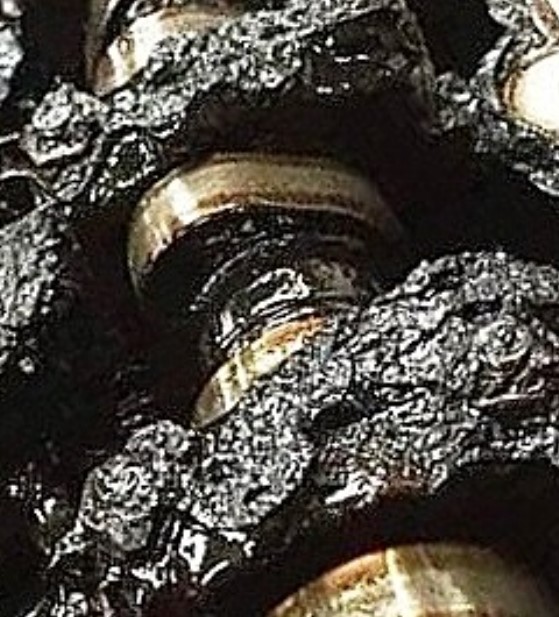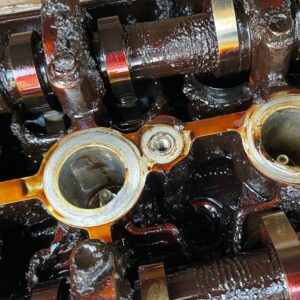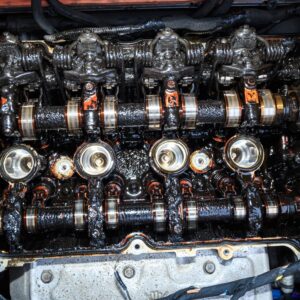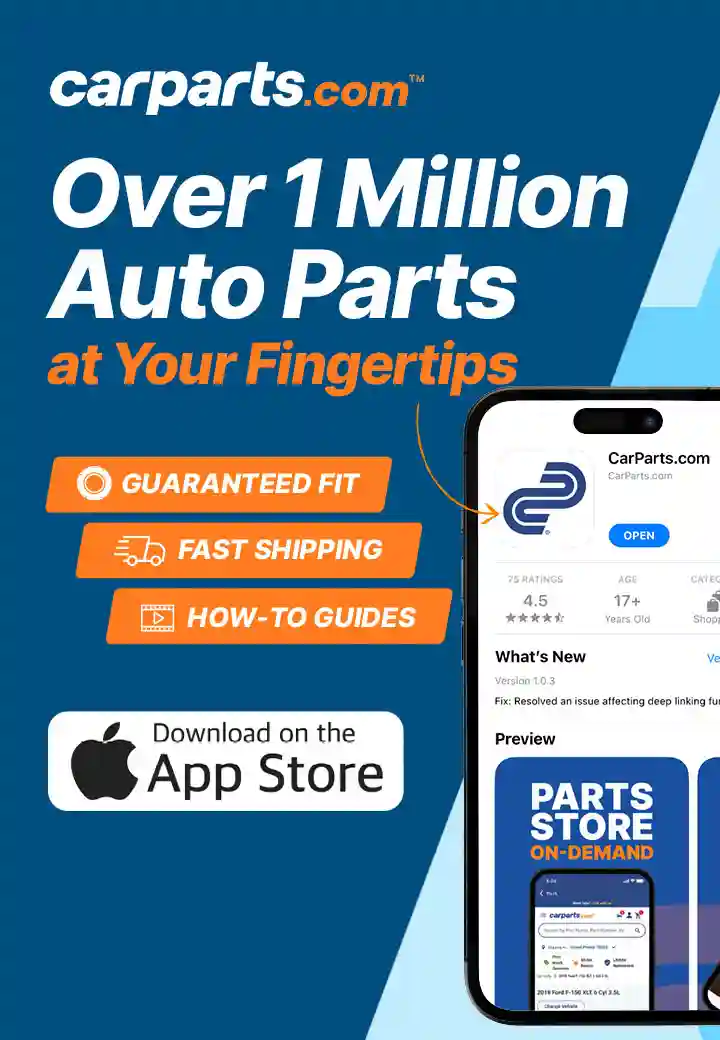Gunk and debris buildup inside the engine is a common problem in older engines, particularly those “grandma” cars that make frequent short trips without being allowed to reach operating temperature. It happens as well with newer vehicles that don’t get regular oil changes or use the wrong kind of oil. If left unaddressed, the oil sludge and contaminants may cause a blockage inside the engine, which leads nowhere good.
Fortunately, engine cleaners are here to help – in as much as possible.
But what exactly are engine cleaners and why are they so important?

What Is an Engine Oil Cleaner and Do They Work?
Engine oil cleaners are designed to clean engines by dissolving sludge and carbon deposits throughout the system. The chemicals used to create the solution vary from product to product.
What Causes Engine Sludging or Blockage?
To better understand why engine cleaners are important, let us take a closer look at why engines get clogged in the first place.
Here are some of the reasons why engines may get clogged over time:
Bad Oil Filter
A bad oil filter accumulates dirt and debris at a faster rate, slowing down the circulation of oil throughout the engine. Contaminants may mix with the oil to create sludge, clogging the engine further.
The best way to deal with this problem is to follow the manufacturer’s recommended oil change intervals and replace the oil filter regularly. Also, always use the recommended oil with preferably the OEM filter brand that came on the car when it was new.

Frequent Short Journeys
Avoid driving short distances if you can. Driving short distances means your engine is forced to operate at low temperatures.
The engine creates a gallon of water for every gallon of fuel burned, and if it’s not allowed to completely warm up, some of the water will bypass the compression rings as blowby and mix with the oil in the crankcase before the PCV system can sufficiently remove it. This process makes sludge in a big way. Once again, an ounce of prevention is worth a pound (or a ton) of cure. Put out the match before it starts a fire.
Incompatible or Low-Quality Oil
Engines are designed to work with specific kinds of oil. Using oil of a different viscosity than what your automaker recommends can lead to increased friction and poor lubrication inside the engine. It’s important to use engine oil compatible with your vehicle, so check your vehicle owner’s manual before purchasing engine oil.
It’s also a good idea to avoid low-quality oil, which may have impurities that linger long after the oil decomposes, clogging and contaminating the engine.
Water Leaks and Contamination
Water occasionally seeps in and mixes with engine oil through cracks and leaks, contaminating it and creating sludge. Once again, moisture created during combustion will make its way into the crankcase as blowby if the engine is running too cold.
What is an Engine Flush and Is It Necessary?
If there’s engine blockage or too many contaminants in the oil, it might be time to conduct an engine flush. This is accomplished by using engine cleaner to flush out contaminants from the engine and replacing the engine oil entirely to let an engine run as if it were new again.
Engine flushes are important because they help drivers get rid of carbon deposits, sludge, and other contaminants that can potentially clog the engine. This is done for many reasons, boosting performance and helping lubricating oil circulate to prevent overheating.
However, engine flushes can sometimes do more harm than good. This is especially true for older engines subjected to wear and tear over the years. Sludge and carbon deposits can clog an engine but they can also cover up cracks and tears. This means that flushing the engine could expose those cracks once more, leading to oil leaks.
Because of this, it’s important to consider both the advantages and disadvantages before conducting an engine flush.
Engine Flush Pros
Here are some of the benefits of flushing your engine clean before an oil change.
Better for the Environment
Engine flushing is good for the environment because it helps reduce emissions by freeing stuck piston rings. Sludge and other contaminants can potentially jam piston rings and keep them open, letting engine oil leak into the combustion chamber. This oil produces toxic fumes when burned.

Clears Contaminants from the Engine
Arguably, the biggest advantage of engine flushing is being able to purge your engine of unwanted sludge and carbon deposits, letting it run almost as if it were brand-new. Clearing contaminants also means you can maximize the longevity and efficacy of the new engine oil.
Increases Fuel Efficiency
Because contaminants make oil more viscous and less effective at lubricating the various parts of the engine, purging them improves the engine’s performance by letting parts move quickly and efficiently. This increases your vehicle’s fuel efficiency since less power will be needed to keep the engine functional.
Can Help Prevent Overheating
Oil minimizes friction, which tends to helps prevent engine overheating. Many engines have engine oil coolers for the specific purpose of helping cool the engine. At the same time, getting rid of oil sludge helps the engine dissipate trapped heat.
Engine Flush Cons
Despite the numerous benefits that come with performing an engine flush, there are times when it might be better to hold off on it.
Here are some of the cons of doing an engine flush:
Can Potentially Clog the Oil Pump Screen
Releasing large amounts of sludge in the upper part of a heavily sludged engine can cause the sludge to collect in the engine oil pan as a thick muck, starving the engine for oil and ultimately destroying it. This is a significant issue on engines that already have heavy sludge.
Might Cause Leaks
Sometimes an engine oil flush can cause seals to leak that weren’t leaking before. Be aware of that.
Where to Get an Engine Oil Flush for Your Vehicle
Flushing your engine also prevents it from overheating and reduces overall emissions. Finding cleaning solutions for this job can be tricky, especially if your local auto shops don’t carry them. Fortunately, with the help of CarParts.com, you can easily find an engine oil flush with just a few clicks.
You won’t even have to take one step outside your door to get your hands on your order. To get started, use your mobile device or computer to visit our website. Use the vehicle selector and search filters to find what you need in minutes.
We source our products from the most trusted names in the industry. Each product is carefully vetted by a team of professionals to guarantee premium quality at affordable prices. On top of that, our warehouses are located all over the US, meaning you can receive your order within days.
Don’t miss out on the best deals on car cleaning solutions. Check out our catalog and shop now!
Any information provided on this Website is for informational purposes only and is not intended to replace consultation with a professional mechanic. The accuracy and timeliness of the information may change from the time of publication.

































